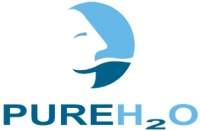Can Water Be Too Clean?
 It is a widespread myth that drinking reverse osmosis filtered water, can lead to a lack of minerals in the human diet. Minerals are essential for the human body to control bone growth, metabolism, nerve and muscle functions.
It is a widespread myth that drinking reverse osmosis filtered water, can lead to a lack of minerals in the human diet. Minerals are essential for the human body to control bone growth, metabolism, nerve and muscle functions.
Though it is a misconception that we obtain our daily dose of minerals from water some people still obsess about drinking water with the ‘correct’ number and distribution of minerals. The food we eat makes a greater contribution to our daily mineral needs. Even with very mineral rich water it is impossible for the human body to receive enough minerals by only drinking water.
Reverse osmosis is a well-known and widely accepted water purifying method, and the technology has been part of the food ingredient industry for decades.
Reverse osmosis purification gives as a result very high-quality drinking water, and is implemented in Pure H2O’s mobile BlueBox water purifying units, which makes them a suitable solution to provide safe drinking water anywhere in the world as long as surface water is present. They remove sediments, organic chemicals, bacteria, pathogens, as well as dissolved solids like minerals, heavy metals and aqueous salts.
The filtration saves humans from mercury, cadmium, lead, chromium arsenic and other poisionous materials, which can cause severe health issues and even be lethal. The removal of harmful minerals and materials comes at the expense of removing ‘good’ minerals, which can be gained elsewhere.
In spite of the removal of innocuous minerals, this should never be an argument of downplaying the importance of cleaning water polluted by disease-causing contaminants. Human vitamin and mineral requirements will be met through food intake.
The BlueBoxes supply drinking water in accordance with both the WHO guidelines and Sphere standards. The drinking water quality therefore suits all sorts of deployments, such as military use and emergency relief.
Image: Is this glass of water harmful?

